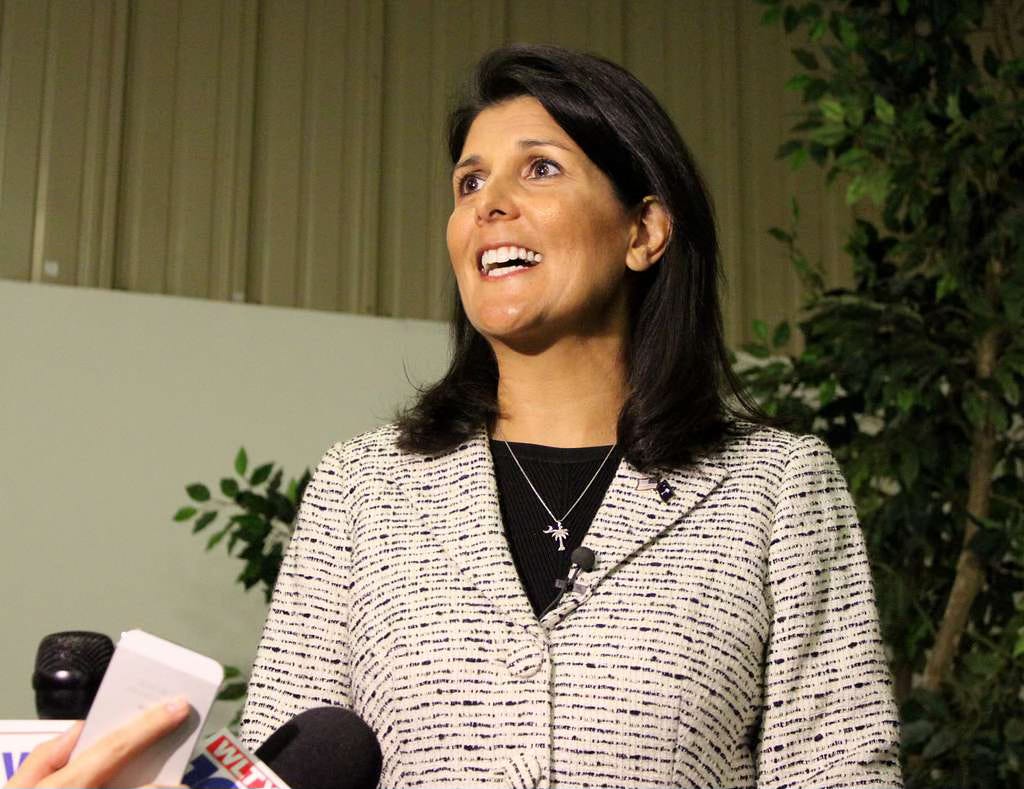The case for a competitive nomination
Here's how this could go at least to Super Tuesday, and maybe beyond
Let’s just stipulate that by basically every measure we have — polling, elite endorsements, county chair preferences, etc. — Donald Trump is the overwhelming favorite to win the Republican presidential nomination and win it quickly. But there’s still enough uncertainty that it’s worth mapping out what an alternative scenario might look like. I still think it’s highly unlikely that anyone but Trump wins this, but there’s reason to think the contest could go on longer than most are expecting. Here’s how this could play out.
We’re just a week out from the Iowa caucuses, and quite remarkably, there’s been no public polling there since mid-December. It’s possible Trump still has an overwhelming lead there. It’s also possible that the high-profile endorsements by Governor Kim Reynolds and evangelical leader Bob Vander Plaats for Ron DeSantis have actually had some impact there. It’s also possible Nikki Haley, who has seen a rise in some national polls, has been having a moment in Iowa. We don’t know. (Trump is at least acting like Haley is a threat.)
According to the last Iowa polls, Trump has around 50% there, with both Haley and DeSantis coming in a bit under 20% each. Let’s just imagine that Trump underperforms those numbers, coming in around 40%, and either DeSantis or Haley pulls around 25%. Yes, that’s still a loss, but that would be a significant over-performance by DeSantis/Haley relative to expectations, and, more importantly, an underperformance by Trump. This would generate a ton of news stories and conversations among activists and party leaders that Trump, despite everything, is actually not bullet-proof. (Remember Bill Clinton losing to Paul Tsongas in the 1992 New Hampshire primary by eight points, but it being largely portrayed as a win because everyone expected the scandal-plagued Clinton to get trounced.)
Then it’ll be a week until New Hampshire, during which time a non-Trump candidate (let’s say Haley) has some time to campaign in a more competitive environment, with the media treating her as a viable candidate. Some party insiders would begin to see her as a real shot for a non-Trump nominee and start to endorse her and donate money to her campaign. The increased attention and consolidation of the non-Trump portion of the party leads her polls to spike in New Hampshire, and she comes within 10 points of Trump there.
Then it gets quiet for a while. The Nevada contest the first week of February is going to be a mess — Nikki Haley will dominate the primary while Trump will likely prevail in the caucuses, but no one will much know what to make of that. The next contest is the primary in South Carolina, Haley’s home state, on February 24th, a full month after New Hampshire. Expectations will be high for her in her own state, and if she’s bested by Trump there it won’t look good. But if her campaign has surged and a bunch of other candidates have bowed out during February, she’s got a shot of winning that contest. (Even better for her if DeSantis has bowed out and endorsed her, but I’m doubtful he’d do that. Chris Christie might.)
Trump will probably dominate the Michigan primary at the end of February. But then a week later is Super Tuesday, when more than a dozen states and territories are having their contests. This includes the contests in Colorado and Maine, where Trump’s ballot position is currently in question. Those contests will be heavily affected by what’s occurred in the month prior to that, including progress on Trump’s trials, more state ballot disqualifications, and more. If Haley has continued to over-perform, she could make some real inroads on Super Tuesday. Trump still probably wins the nomination, but she could slow that process down considerably by winning some of those states.
Again, this is somewhat of a long shot, but there’s enough uncertainty in there that the idea that this contest goes past early March, at least, is a reasonable bet.






The news media and the Democrats have been working so hard to get Trump the nomination that we may all be surprised when Republicans actually start voting in the primaries. I estimate that one-third of Republicans are solidly dedicated to Trump. But then there are a bunch of soft-Trump voters who have resented the indictments and efforts to remove Trump from the ballot, even though they are not enthusiastic about Trump himself. These are the people who could still vote for DeSantis or Haley.